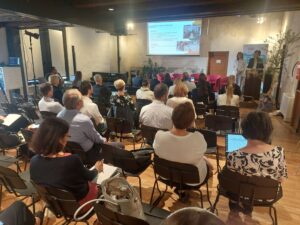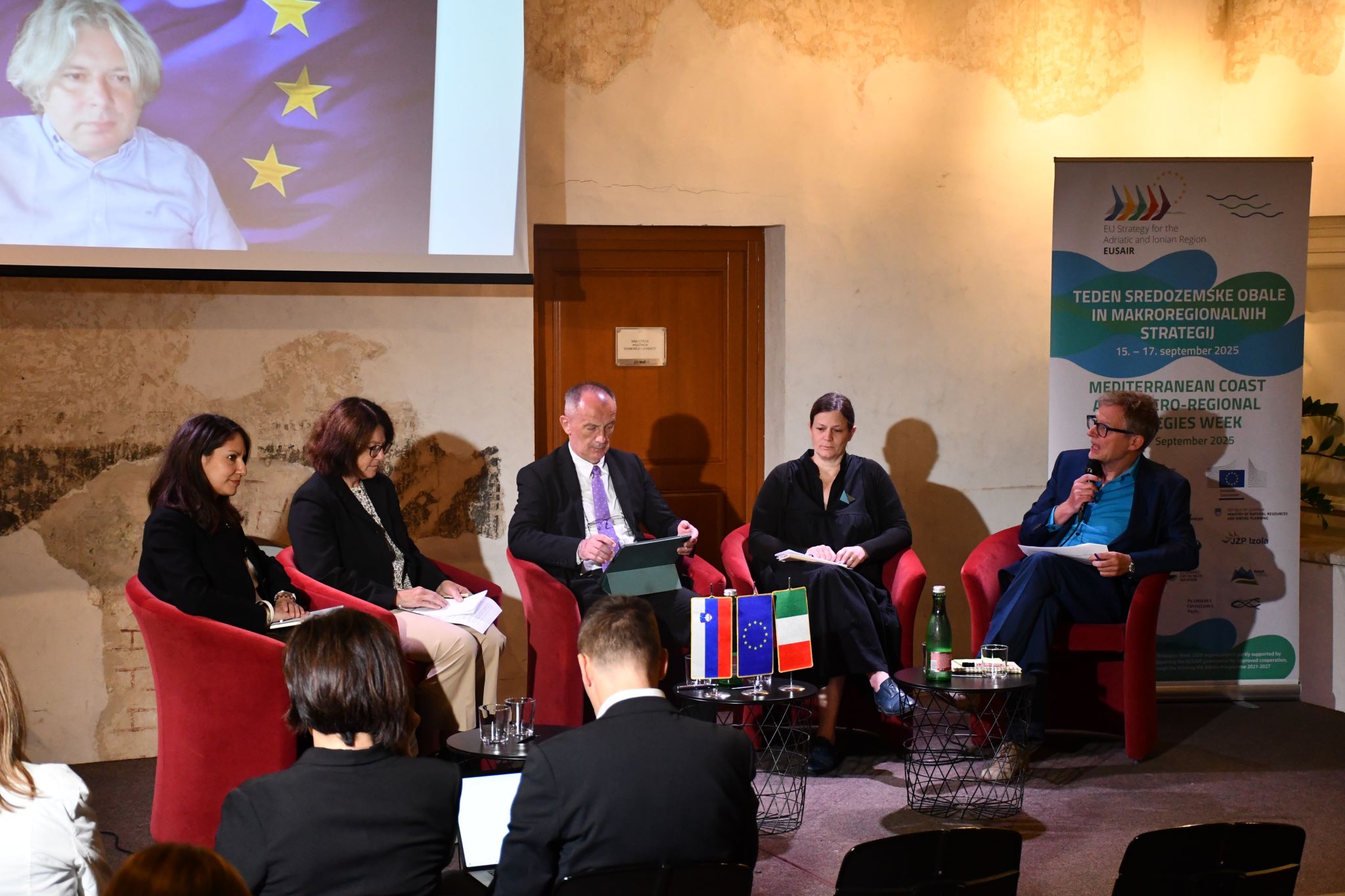Project partner Peter Niederer from SAB shares his insights on the Mediterranean Coast and Macro-Regional Strategies Week 2025
On 17 September 2025, the SMART ERA consortium held a workshop exploring practical approaches to the smart transformation of rural areas and their policy implementation from a cross-macroregional perspective. The workshop formed part of this year’s Mediterranean Coast and Macro-Regional Strategies Week in Izola, Slovenia, which was hosted by EUSAIR. The event was moderated by SMART ERA partner SAB and was divided into two parts.
Part 1: Presentations
Firstly, the SMART ERA project was presented. Project Coordinator Matteo Gerosa from Fondazione Bruno Kessler introduced the project’s overall framework and explained the SIP (Smart Innovation Package) methodology, which is designed to co-create innovations with local communities. Next, project partners Slavica Samardžić and Milica Kovačević presented the SMART ERA pilot site of Eastern Herzegovina. They highlighted the main challenges identified in the test area and how these were addressed using the SIP methodology to develop two concrete implementation measures:
- a smart B2B platform for the agritourism sector
- a smart platform for personalised tourism experiences.

Slavica and Milica presenting the East Herzegovina pilot
Part 2: Panel Discussion
In the second part, Peter Niederer (SAB) led a panel discussion with:
- Gilles Kittel (European Commission, DG REGIO);
- Simona Vrevc (Director General of the Ministry of Agriculture, Forestry and Food in Slovenia);
- Iva Čaleta Pleša (Deputy Coordinator for EUSAIR Pillar 4: Sustainable Tourism);
- Claudia Singer-Smith (Coordinator of EUSDR PA10 – Institutional Capacity Building);
- Midhat Džemić (National Coordinator for the EUSDR, Presidency of Bosnia and Herzegovina for 2025 and EUSAIR).
The panellists shared their views on the part played by smart, community-led projects such as SMART ERA in driving rural transformation, and considered how to ensure their policies are adopted. Both the panellists and the audience emphasised the importance of community-driven initiatives in shaping sustainable rural futures. They commended SMART ERA as a comprehensive and exemplary project, noting that such initiatives foster local ownership, strengthen socio-economic and environmental resilience, and contribute to policymaking that better reflects local needs.
The following policy recommendations emerged from the discussions:
- Member States should develop dedicated funding, strategies and action plans for smart, community-led projects.
- Regulations should be simplified and made more flexible.
- EU, national and regional policymakers must address the digital divide by investing in infrastructure, training and capacity building.
- The potential of Smart Villages should be fully realised; Slovenia is already applying this tool effectively under its national CAP.
- The transformative impact of smart, community-led projects should be formally recognised at all levels. The four macroregional strategies have already reached this stage, each integrating a smart, community-led approach into their action plans.
Uptakes
The panel also emphasised the added value that smart, community-led projects could bring to the Common Agricultural Policy (CAP), macroregional action plans and cross-macroregional cooperation.
Simona Vrevc emphasised the CAP’s potential as a key driver of rural innovation. Slovenia is investing heavily in LEADER, CLLD measures and Smart Villages under the CAP, while ensuring the continuity of Local Action Groups (LAGs). This is crucial for long-term community learning and the effective delivery of projects. Gilles Kittel emphasised the importance of smart, community-led projects (including Smart Villages, SmartCommUnity, and SMART ERA) in advancing rural transformation, noting their integration into the revised EUSAIR Action Plan. Iva Čaleta Pleša elaborated on the tangible impacts of the revised EUSAIR Action Plan, particularly its flagship projects in areas such as the ‘greening of tourism’ and rural tourism. Claudia Singer-Smith and Midhat Džemić pointed out the significant opportunities for mutual learning, co-design and joint flagship initiatives through cross-macroregional projects such as SMART ERA. Džemić further emphasised the benefits of resource pooling and policy alignment.
In conclusion
The SMART ERA macroregional cooperation activities have already produced results. Cross-macroregional collaboration has been strengthened and the new EUSAIR action plan explicitly recognises the value of smart, community-led projects. Cooperation among the four EU macroregional strategies under SMART ERA will continue, with the next milestone being a cross-macroregional conference scheduled for 24 March 2026 in Sofia, Bulgaria.





